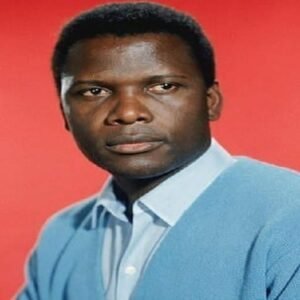The novel Our Man in Iraq written by the Croatian novelist Robert Perisic was published in 2008. The title of the book reminded me of Graham Greene’s Our Man in Havana published in 1958. An espionage thriller. Graham Greene was using the novel to mock the intelligence services. As it is well known, a true modernist spy story is traditional and serious. It was supposed to be like that. However Graham Greene’s novel is an avant-garde modernist parody and Robert Perisic’s novel is an uncovering of this literary modernism. In other words, the novel is an imitation of an imitation.
In this paper, I would like to show the power and strength of literature on culture and humanity. Besides I would like to show how novels can be the examples of modernist and postmodern times. This postmodern intertexuality is worth mentioning. I have been teaching Modern and Postmodern literature at the university for quite a time. For that reason, I love thinking about and sharing the literature of these periods.
The novel Our Man in Iraq reminded me of Graham Greene’s famous 1958 book Our Man in Havana. Havana was the center of US interest during the 1950s when communism was the big issue for America’s homeland security. The word Havana also reminded me of the Havana Syndrome which became an illness of US intelligence officials and diplomats around the world, reporting anomalous health incidents. In Perisic’s novel there is the reference to the new illness called post-traumatic stress disorder (PTSD). So the US is leaving very important land marks on history, culture and on medicine industry.
Another narrative based on Our Man in Havana is The Tailor of Panama. So literature is like a chain reaction of chain impressions. During the Modernist period which had started with 1890s, the Eurocentric culture was very powerful all around the world and it imposed its ideas all over. With the Postmodern period after 1945, we know about the times of Post-structuralism, Post-colonialism, Post-feminism, Post-industrialization and all other posts.
Postmodernism in literature has got different experiments, fashions, ways, uses and methods. Here I would like to discuss Graham Greene and Robert Perisic’s novels which are really very comic. The two writers, one modernist avant-garde and the other postmodernist, deal with the spy thriller genre in their own cultural context. Greene’s parody story is about a British vacuum cleaner salesman’s adventures in the British secret service. At the end of this modernist novel, the salesman Jim Wormold quite traditionally marries the secretary Beatrice and they live happily ever after with Wormold’s daughter Milly. However Robert Perisic’s espionage novel is quite different with a relatively tragicomic ending.
Greene mocks especially the British MI6 and the willingness of the spy’s to believe the reports from their local informants. A vacuum cleaner salesman in 1950s in Havana accepts a job in espionage for MI6, but has no actual intel to send. So he makes it up, delivering ridiculous but credible reports whose political implications reach across the world and endanger several lives. In Perisic’s novel most of the damage falls on Toni’s personal life.
The novel Our Man in Iraq is set in Zagrep during 2003. The main character Toni living with his girlfriend Sonja is an economics correspondent for a famous Croatian newspaper. He is besieged by his mother and aunt for his rural relative’s request for work. In the meanwhile politics and nepotism collide. Succumbing to his mother’s naggings, Toni arranges a job for his cousin Boris to cover the ongoing US invasion of Iraq despite his lasting shell shock from the Croation War. So Boris is expected to uncover the US doings. Shortly Boris’s reports from Iraq start to become strange until they cease coming in altogether and Boris goes missing. However Toni rewrites Boris’s reports and passes them off as truth. So this postmodernist post-truth idea becomes a big issue in the media sector. Trapped by his fabrications, Toni begins to lose what is real and sensational. The role of postmodern media and a small country as Toni calls Croatia is clamoring for attention on the global stage.
In this first person narrative, there are many characters like Toni’s girl friend Sonja who becomes a very famous theatre actress in the meanwhile, a friend Markotoviç with marriage problems, colleagues and bosses at the newspaper and the very interesting mother and aunt character Milka. The funny side of the story is about Milka and her son Boris who knows Arabic and who is sent to Iraq but got lost in the 1990s. As Toni explains, they are rural people living in Zagrep and they have very close family ties. During the narrative, Toni’s stream of consciousness and questionings are about Croatia, capitalism, the Bosnian war, future of the country and the incidents (like violence) of the postmodern times.
In the novel, many things change during the five days around the newspaper office in Zagrep when Boris is lost. The close relationship within the extended family in Croatia and the aunts are really very funny. All the characters try to uncover the secret about Boris. The best part of the novel is about the young and elderly women. I enjoyed reading this novel with its new context of a spy story.
Prof. Dr. A. Didem Uslu

(This paper was presented at the 2024 ISCLT conference in Brassenone, north Italy.)


